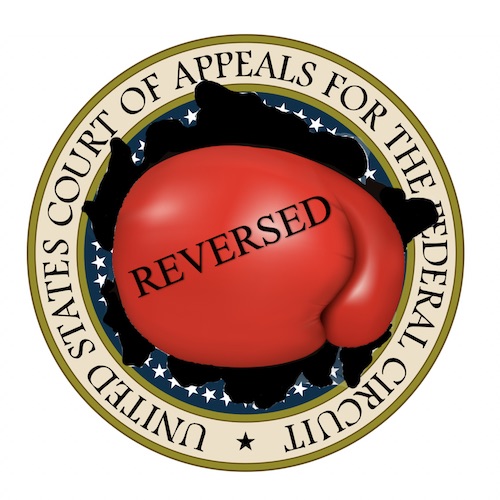“The CAFC ruled that the use of ‘shall’ was non-discretionary language indicating Congress’ mandate that all of the AIA’s provisions, including its elimination of interference proceedings, apply to patents issued under the first-inventor-to-file system.”
 On July 14, the U.S. Court of Appeals for the Federal Circuit issued a precedential decision in SNIPR Technologies Limited v. Rockefeller University reversing a decision by the Patent Trial and Appeal Board (PTAB) that invalidated all claims from five SNIPR patents. In reversing, the Federal Circuit found that the PTAB erroneously subjected SNIPR’s patents to interference proceedings that Congress meant to eliminate when it enacted the America Invents Act (AIA) of 2011.
On July 14, the U.S. Court of Appeals for the Federal Circuit issued a precedential decision in SNIPR Technologies Limited v. Rockefeller University reversing a decision by the Patent Trial and Appeal Board (PTAB) that invalidated all claims from five SNIPR patents. In reversing, the Federal Circuit found that the PTAB erroneously subjected SNIPR’s patents to interference proceedings that Congress meant to eliminate when it enacted the America Invents Act (AIA) of 2011.
PTAB Invalidates SNIPR Patent Claims in Interference Proceedings
Both SNIPR and Rockefeller University have developed technologies for selectively killing bacteria through clustered regularly interspaced short palindromic repeats (CRISPR) gene editing methods. SNIPR’s patents were filed after the March 16, 2013 effective date of the AIA, and thus are fully subject to the AIA statute. Rockefeller University’s patent claims, however, claim priority to a patent application filed prior to the March 2013 effective date and thus classified as pre-AIA patents not subject to much of the newer statute. After instituting an interference proceeding, the PTAB invalidated all challenged claims of SNIPR’s post-AIA patents.
In moving the U.S. patent system from a first-to-invent filing system to a first-inventor-to-file system, the AIA eliminated language from Title 35 of U.S. code that provided for interference proceedings. Historically, interference proceedings were conducted by the U.S. Patent and Trademark Office to settle disputes of invention priority between two patent applicants claiming the same invention in two separate filings. Although the AIA provides for derivation proceedings when a junior patent applicant claims that a senior patent applicant derived the earlier-filed patent from the junior party’s invention, that law made several changes to remove priority requirements from patents issued after the AIA’s effective date.
AIA’s Provisions ‘Shall’ Apply to Patents Filed After Effective Date
The main issue in SNIPR’s appeal to the Federal Circuit was whether SNIPR’s patents, which were issued after the AIA’s effective date, could be subject to interference proceedings that were expressly eliminated by the AIA. The PTAB had reasoned that, while SNIPR’s patents were post-AIA patents, Rockefeller University’s pre-AIA priority date and its unchallenged status as the senior party meant that its priority claim must be examined under the pre-AIA statute.
Parsing the statutory text of the AIA, however, the Federal Circuit found that Congress clearly intended to prevent patents issued after the AIA’s effective date from entering interference proceedings. Starting with § 3(n)(1) of the AIA, which governs that law’s effective date, language stating that the AIA’s amendments to patent law “shall” govern patents issued after March 16, 2013. The CAFC ruled that the use of “shall” was non-discretionary language indicating Congress’ mandate that all of the AIA’s provisions, including its elimination of interference proceedings, apply to patents issued under the first-inventor-to-file system.
Further, the CAFC pointed out that Congress specifically intended for a certain subset of post-AIA patents to be subject to interference proceedings. However, those provisions at Section 3(n)(2) of the AIA indicate that such proceedings are only available for post-AIA patents that either include or once included a patent claim having an effective filing date prior to the AIA’s effective date. Legislative history cited by the CAFC established Congress’ view that interference proceedings were lengthy, expensive and unnecessary under a first-inventor-to-file system. In this context, the Federal Circuit found that pure post-AIA patents without any pre-AIA patent claims are completely prohibited from interference proceedings.
Broad Inclusion of Post-AIA Patents in Interference Proceedings Flouts Congress’ Intent
Both Rockefeller University and intervening party USPTO Director Kathi Vidal argued on appeal that pre-AIA 35 U.S.C. § 135, which provided for interference proceedings prior to enactment of the AIA, states that “any unexpired patent” claiming interfering rights may be subject to an interference proceeding. However, in construing the overall statutory scheme, including the AIA, the CAFC found that this interpretation would open the entirety of post-AIA patent claims to interferences, clearly flouting Congressional intent. Further, such a definition would render superfluous Section 3(n)(2)’s provisions on mixed patents that are subject to interference proceedings despite an effective filing date after March 16, 2013.
The Federal Circuit also nixed the argument that foreclosing the possibility of interference proceedings on post-AIA patents would prevent the USPTO from addressing situations where two patents are granted on the same invention. However, the Federal Circuit noted that patent validity challenges at the PTAB are available, and that pre-AIA patent applications would be invalidating prior art to post-AIA filings.
Image Source: Deposit Photos
Image ID: 10042948
Author: almoond

![[IPWatchdog Logo]](https://ipwatchdog.com/wp-content/themes/IPWatchdog%20-%202023/assets/images/temp/logo-small@2x.png)

![[Advertisement]](https://ipwatchdog.com/wp-content/uploads/2024/04/UnitedLex-May-2-2024-sidebar-700x500-1.jpg)
![[Advertisement]](https://ipwatchdog.com/wp-content/uploads/2024/04/Artificial-Intelligence-2024-REPLAY-sidebar-700x500-corrected.jpg)
![[Advertisement]](https://ipwatchdog.com/wp-content/uploads/2024/04/Patent-Litigation-Masters-2024-sidebar-700x500-1.jpg)

![[Advertisement]](https://ipwatchdog.com/wp-content/uploads/2021/12/WEBINAR-336-x-280-px.png)
![[Advertisement]](https://ipwatchdog.com/wp-content/uploads/2021/12/2021-Patent-Practice-on-Demand-recorded-Feb-2021-336-x-280.jpg)
![[Advertisement]](https://ipwatchdog.com/wp-content/uploads/2021/12/Ad-4-The-Invent-Patent-System™.png)






Join the Discussion
No comments yet.